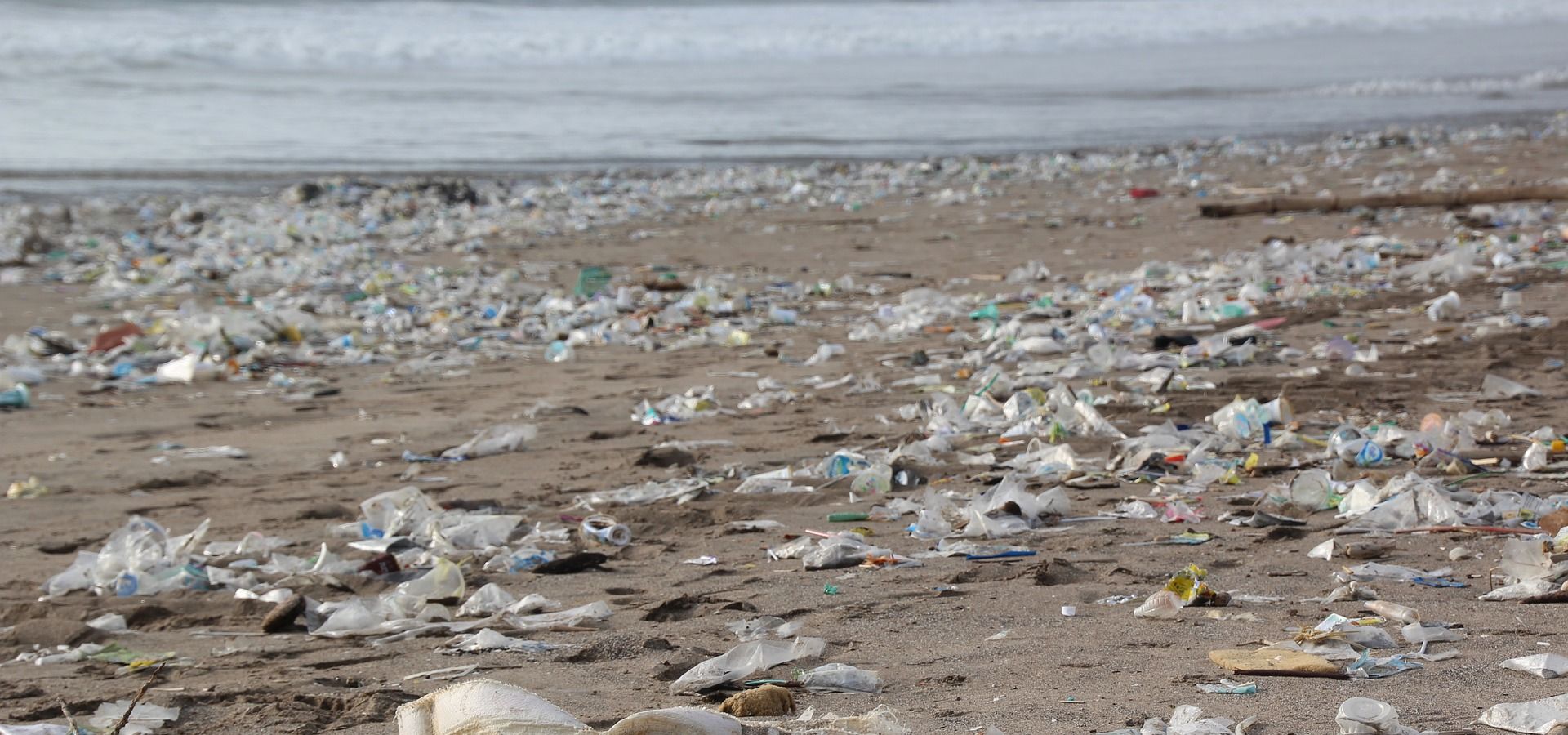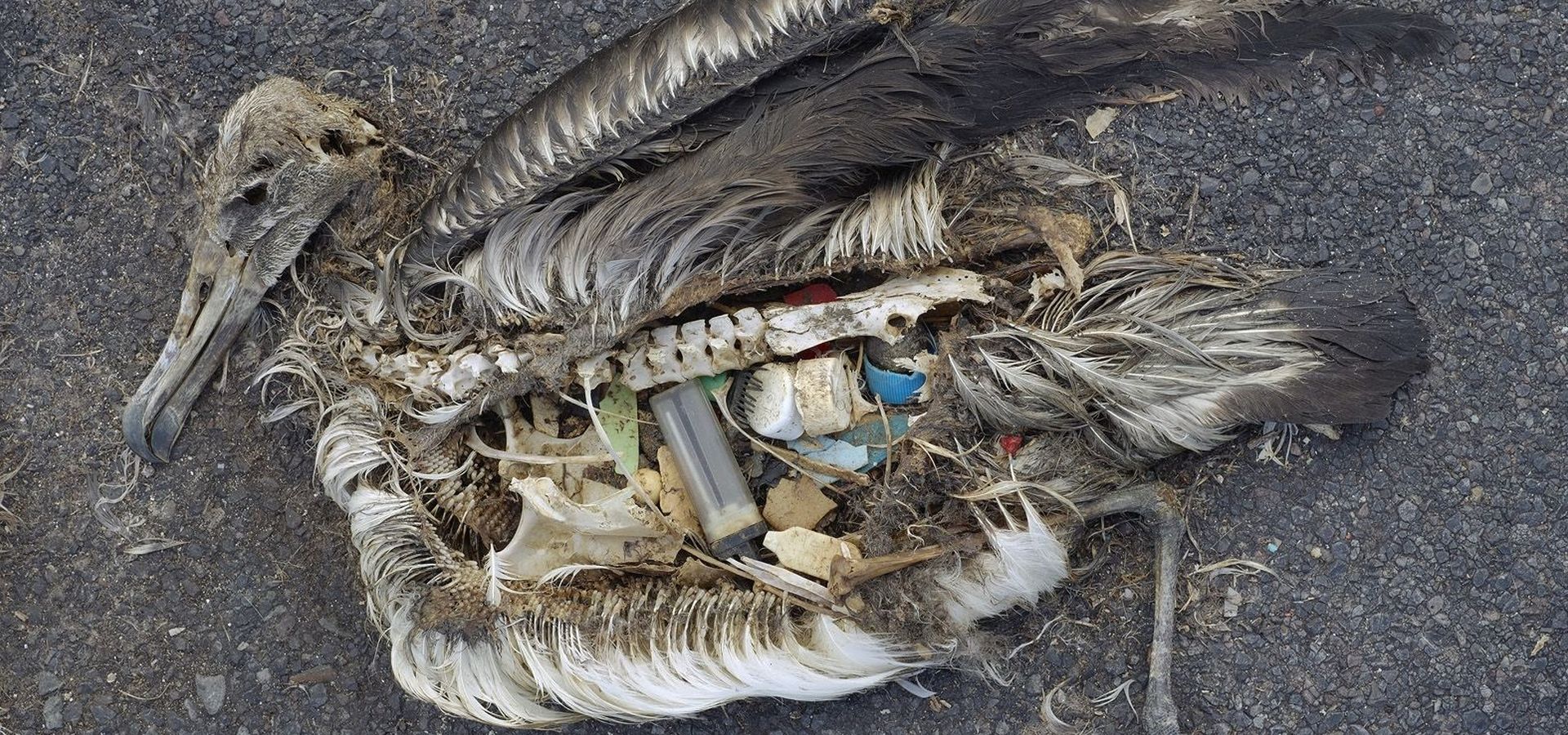The plastics industry has reaped massive hidden benefits from the environmentally destructive fracking boom. Andy Gheorghiu of Food and Water Europe makes a connection business interests and US politics.

Plastic causes dangerous environmental pollution (Public Domain)
I guess that when people think of plastic pollution most of the time they think of single use plastic items (such as plastic bags, cotton buds, plastic straws, and food & beverage packaging)
I also guess that – when people think about getting active against plastic pollution – some people would like to introduce bans on single-use plastic bags and cotton buds as well as bottle deposit-return and recycling schemes – basically trying to help reduce the use of polluting plastic in their daily lives.
However, the core of the problem lies in the business of virgin plastic production where the key corporations totally rely on, or even represent major oil and gas companies. Unfortunately, these guys are not keen to reduce plastic production at all because that’s what makes both theirs and their shareholders deep pockets happy.
Shale gas and fracking is creating a plastics renaissance in the U.S.
It is increasingly clear that the plastics industry in the United States has reaped massive hidden benefits from the environmentally destructive fracking boom. Hydraulic fracturing (or fracking) injects large quantities of fresh water, sand and toxic chemicals under high pressure to release oil and gas that are tightly held in rock layers.
The fracking boom has also produced an oversupply of cheap ethane in the past few years. This surge has been a boon for the plastics industry, which relies on petrochemical manufacturing to turn ethane (i.e. the so-called “wet gas” component of natural gas) into plastics. According to a recently published IEA report, the United States is home to around 40% of the global production capacity for ethane-based petrochemicals.
Petrochemicals are about to rapidly becoming the largest driver of global oil (including “wet gas” or ethane) consumption – ahead of trucks, aviation and shipping. Today, the chemical sector is already the largest industrial consumer of fossil fuels, accounting for 14% of global oil (including ethane) and 8% of gas primary demand. The IEA expects that cheap ethane consumption will grow by 70% until 2030, in part due to the expansion of US exports to regions such as Europe.
According to the American Chemistry Council, a total investment of $202.4 billion for 333 petrochemical projects have been announced since 2010, with 53 percent already completed or under construction. Appalachia, a region in Pennsylvania that has been already hit hard by massive fracking development in the last 10 years could turn into the largest gas-producing region in the US (accounting for 37% by 2040).
Fracking & plastics’ profiteer you’ve never heard of is the richest man in the UK
The CEO (and basically owner) of major petrochemical giant Ineos, Jim Ratcliffe, has made a fortune by #Fracking4Plastics and it has helped him become the richest man in the UK.
He is the main driving force behind the establishment of an already existing supply chain of fracked US gas that Ineos uses to produce plastics in Europe. The Ineos Dragon Ships crossing the Atlantic emblazoned with the slogan “Shale Gas for Europe” are leaving more than a toxic legacy in Europe — they are fueling the proliferation of fracking in Pennsylvania, a state that already struggeled with the impacts of oil and gas industry pollution. As a matter of course, Ineos tries to downplay the risks of fracking and plastics production; Jim Ratcliffe compared environmental accidents to getting a car tyre puncture.
No wonder. His fortune has been built on it.
Ineos is Europe’s largest ethylene producer, with ethylene being the most important chemical building block for plastics, solvents and fibres. The company has operated chemical plants for nearly two decades, but in that short time many of its facilities have been bedeviled by environmental problems. Its dozens of manufacturing facilities across Europe have been responsible for releases of toxic chemicals, leaks, fires and explosions that have endangered workers, communities and the environment. In 2016, Ineos’ Grangemouth complex was Scotland’s top emitter of carbon dioxide. And Ineos is currently facing prosecution over gas-flaring pollution breaches at the Grangemouth facility.
In May 2018, about 450,000 plastic pellets were found on a single beach in Scotland, not very far away from Ineos’ biggest facility in the UK. Endangered Scottish puffins have also been found with plastic pellets in their stomachs. Experts believe that 15 percent of the puffins population that lives in the Firth of Forth (where the Grangemouth chemical complex of Ineos is located) could suffer from swallowed plastic pellets.

Birds are suffering from swallowed plastic pellets (Photo by Public Domain, CC BY 2.0)
Plastic – mainly in the form of pellets or so-called nurdles – has already littered 73 percent of UK’s 279 shorelines. Several studies have shown that sea salt around the world is contaminated by plastic. Plastic fibres have been found in tap and bottled water around the world; in 2017 plankton was caught on camera eating plastic and we now have scientific evidence that degrading plastic emits methane and represents a hitherto unrecognised source of climate change.
Personally, I say “enough is enough” It’s time to stand up and make a difference. It’s time to hold upstream virgin plastic producers for the pollution they’re causing responsible.
It’s time to unite, fight #Fracking4Plastics and companies like #IneosVthePeople.
It’s time to #BanFrackingNow to #BreakFreeFromPlastic!
We’ve taken action for the #GasDownFrackDown 2018:
We urge World Sailing Association to exclude Ineos sailing team
After pledging to “beat plastic pollution” earlier this year, World Sailing’s President comes under fire for allowing UK petrochemical giant INEOS to sponsor the UK sailing team.
INEOS’s sponsorship can be seen as nothing but blatant greenwashing, which directly undermines the ethics of World Sailing.
In its Code of Ethics, World Sailing makes a promise “to protect the environment on the occasion of any events…and to uphold generally accepted standards for environmental protection.” World Sailing further claims to support the objectives of increasing and developing awareness of sustainability issues amongst all sailing stakeholders.
In June this year, World Sailing joined the Clean Seas Campaign, partnering with the International Olympic Committee and UN Environment to “beat plastic pollution”.
The ongoing presence of INEOS Team UK in World Sailing’s headline event single-handedly shatters these endeavours, bringing World Sailing, into disrepute.
Key environmental organisations (including Greenpeace UK, Food & Water Watch, Oil Change International and BreakFreeFromPlastic) as well as grassroots groups have teamed up with academics and are asking World Sailing in an open letter written by Australian Human Rights Lawyer Jennifer Robinson to are asking World Sailing to disassociate itself from INEOS Team UK, and consider the implementation of an ethical and environmentally friendly sponsorship policy that truly reflects its Goals.
INEOS Team UK led by Sir Ben Ainslie embark on the GC32 X in Toulon, France between 10th-14th October 2018 (www.gc32racingtour.com).
In the Letter addressed to World Sailing President Kim Andersen points out:
- World Sailing Code of Ethics promises to protect the environment at any event!
- World Sailing joined the Clean Seas Campaign to beat plastic pollution!
- But now World Sailing allows INEOS to sponsor a sailing team led by Sir Ben Ainslie!
- INEOS is #Fracking4Plastics on both sides of the Atlantic!
- Fracking contributes significantly to climate change, pollutes the environment, threats public health and violates human rights!
- INEOS wants to frack the UK to make more ocean polluting plastics!
- Plastic pollution is one of the biggest threats to our ocean!
- World Sailing to disassociate itself from INEOS Team UK!
The letter was delivered Wednesday, October 10th 2018, to World Sailing HQ, Paddington, London. This action is part of a wide range of events of groups from around the world who will stand together in a united fight against the gas, fracking and plastics/petrochemicals industry for the Global #GasDownFrackDown 2018.
A landing page was create to collect more supporters/signatories for this initiative https://banineosfromamericascup2021.com/.
Andy Gheorghiu is a campaigner and policy advisor for Food & Water Europe. He works with organizations, grassroots groups and individuals in the EU in order to prevent the abusion of the environment.
This article has been republished from breakfreefromplastic.org.
Thanks for the article!